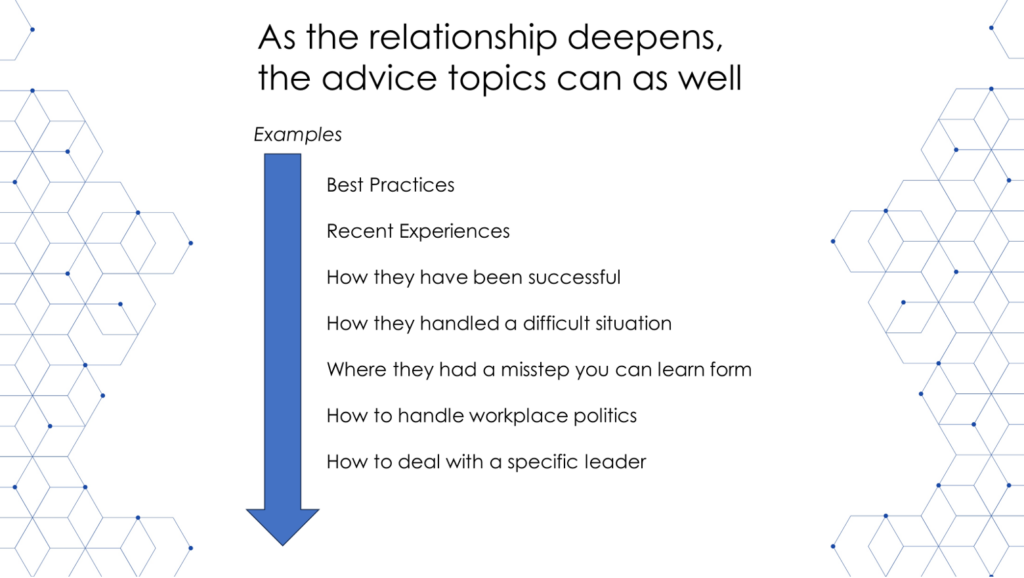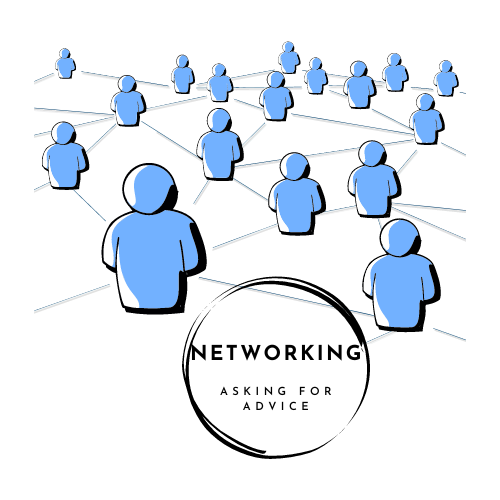I am not sure when networking became synonymous with small talk and discussing the weather, but, somehow, this cringeworthy practice is what people think it takes to connect with others.
You might be thinking, “Well, Reagan, if I shouldn’t use small talk, what do I talk about?”
I am glad you asked, and excited you are reading this blog.
It’s natural to worry about what you’ll say when mingling with others you don’t know. Rather than bringing up random quips about the “crazy weather we are having,” what truly makes an impression is the art of asking for advice. I have found that people think you’re smart when they are talking.
I remember a pivotal moment in my journey as an entrepreneur when I had the privilege of meeting with Molly Fletcher, a phenomenal speaker, author, and former agent. She shared some invaluable wisdom that has stayed with me. Molly said, “If you ask for a job, you’ll get advice, and if you ask for advice, you’ll get a job.”
Here’s the beauty of her insight: when you enter a conversation with the intention of seeking advice, it shifts the dynamic. The person you are talking to transitions from being on the opposite side of the table to being your ally. They become invested in your success, eager to share their insights and guidance because you care enough to seek them out and involve them. Neurologically, it raises their status. It also gives you a very powerful follow-up tactic to report on the success of the advice they gave upon implementation. I’ve tried this approach multiple times with a wide range of success.
“Okay, Reagan, I can ask for advice – check.” Now you might be wondering how you structure their guidance to maximize success.
Let’s talk about the strategy of asking for advice from the time you are casually meeting the person, to establishing a relationship, and then deepening that relationship.

“Getting to know someone” advice:
Initially, when you’re just getting to know someone, it’s best to keep the topics of advice about areas the person knows and can speak confidently on. You might ask, “Can you share with me some best practices on [insert subject matter expertise]? “Can you give insight on your experience or success with [insert a recent activity]?” This creates a comfortable starting point for the discussion because it is objective, positive, and allows the person to freely share their stories and expertise. Bonus: You generally gain some fantastic insights along the way!
“Establishing a relationship” advice:
As you get to know the person, you want to change from discussing successes to relating on difficult situations they faced or missteps they may have made. You start by vulnerably sharing your own story about a challenge or miss and invite them to offer advice from their own difficult situation. “Did you ever struggle with a similar situation? What did you do and what did you learn?”
“Deepening that relationship” advice:
Moving forward, you can explore more complex topics, such as how they handled office politics or difficult leadership situations. These questions require a level of trust and can lead to more profound stories. You can ask things like, “How did you deal with a specific leader who did [insert difficult -behavior]? What were some of the challenges when you dealt with [leader name], and how did you handle it?”
Networking is about more than just exchanging business cards; it’s about forging meaningful, productive relationships by cultivating trust. So, I’m networking by building an emotional connection with someone through the process of building trust while receiving a person’s best advice along the way.
Reagan’s Rule: Build trusting relationships by asking for advice.
